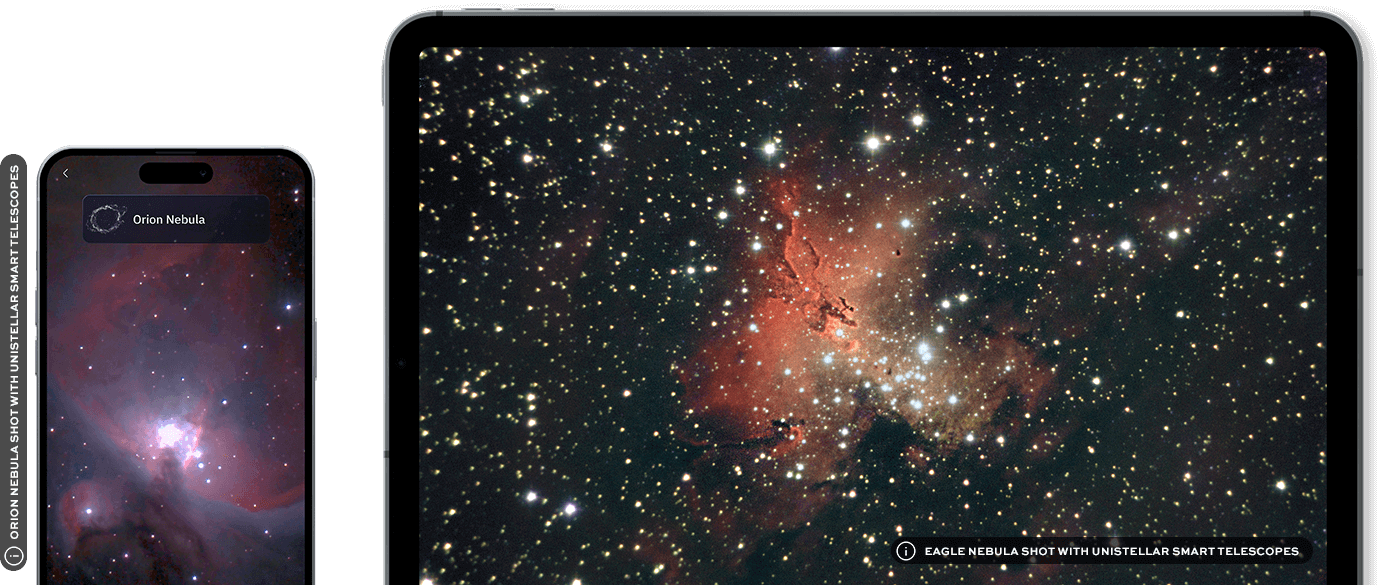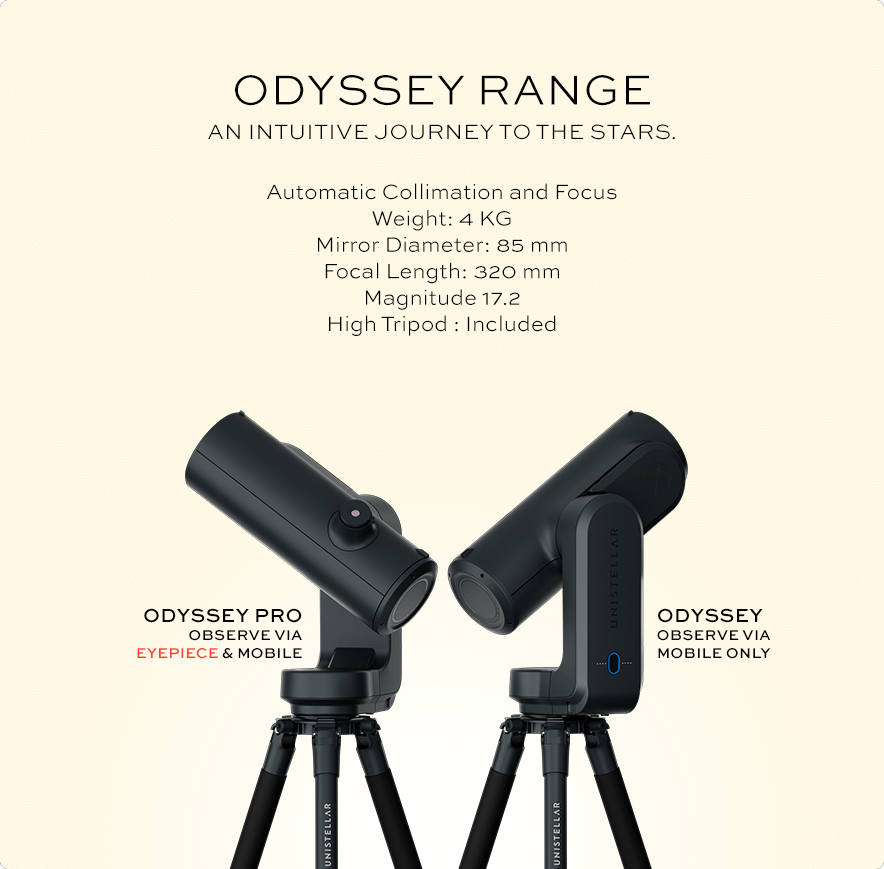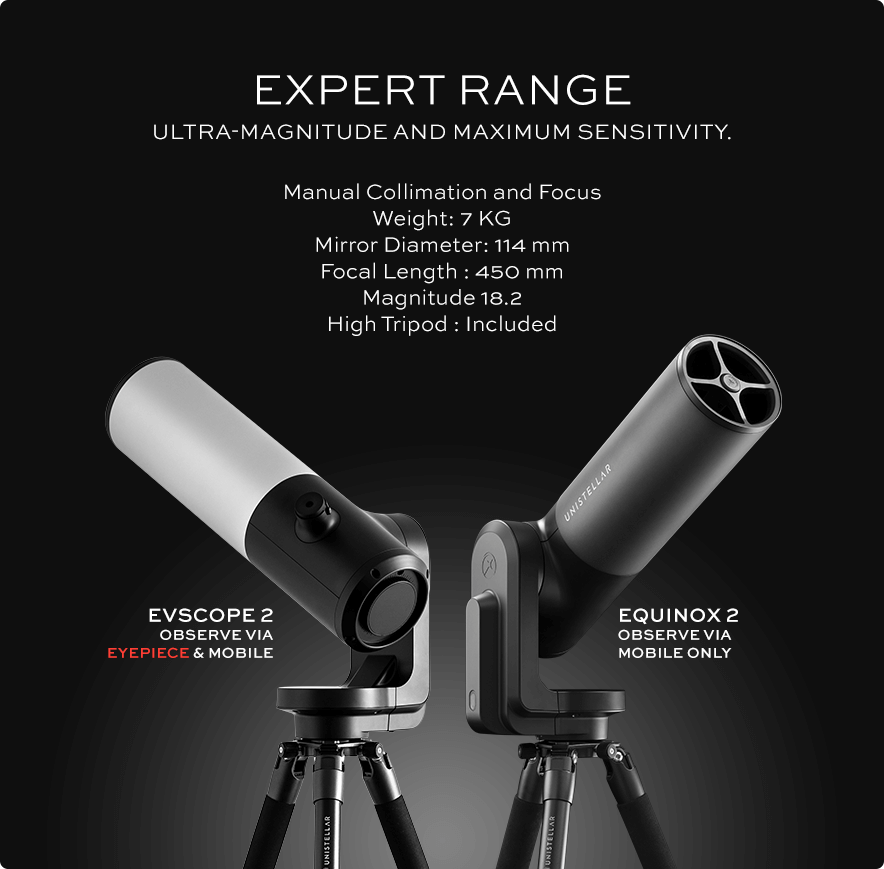“UNISTELLAR has created a nearly foolproof instrument that even novice skywatchers will have a blast with.”


AN UNRIVALLED EXPERIENCE
A true revolution in astronomical observation, UNISTELLAR’s exclusive Dynamic Signal Amplification Technology increases the light signal in real time. The levels of intensity, detail and coloration obtained are unprecedented in the world of consumer telescopes.
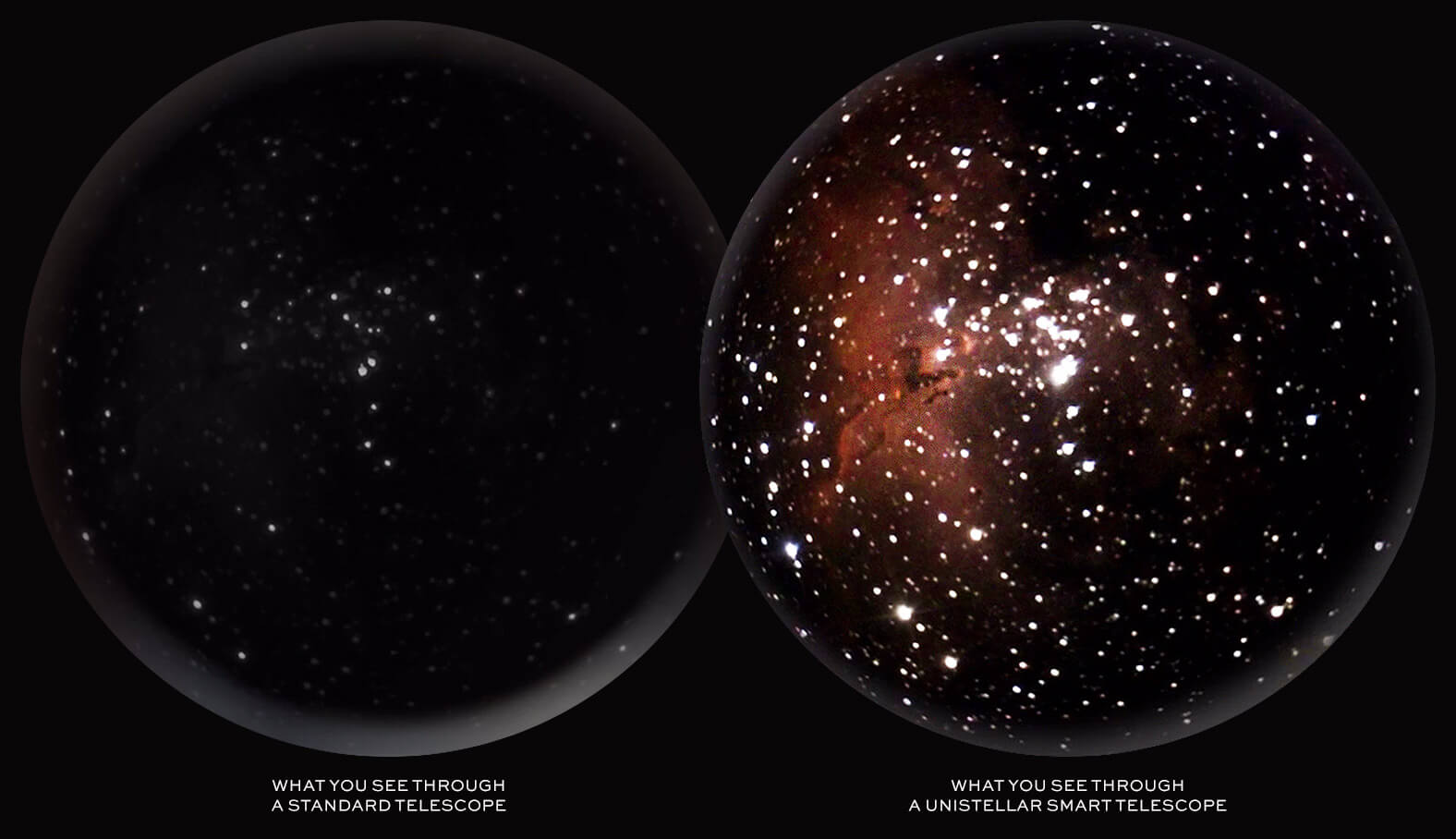
THE COSMOS IN 2 MINUTES
There’s no need to make tedious adjustments, use bulky equipment or plan your observation nights in advance: UNISTELLAR smart telescopes tell you which object to observe according to your position, point at it and follow it automatically.
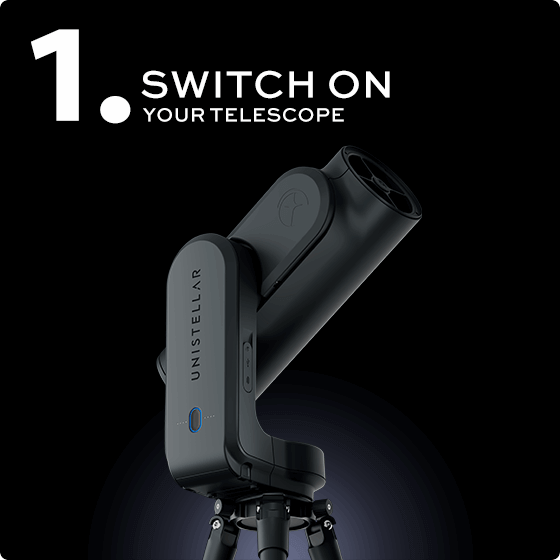

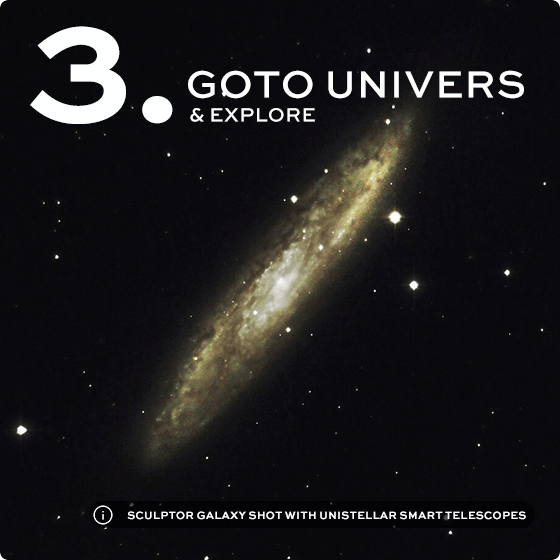
ENVISION
Precision optics and smart AR overlays guide & elevate your night sky and daylight vision Unleash your inner trailblazer.
A JOURNEY TO SHARE
Control your smart telescope from your smartphone or tablet with the UNISTELLAR App. Navigate the cosmos, capture your astronomical discoveries with a simple click, and share unforgettable memories with family and friends.
